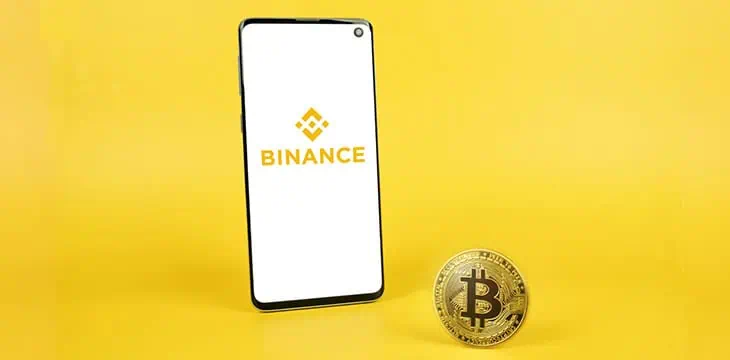|
Getting your Trinity Audio player ready...
|
Binance is protesting an $86 million goods and services tax (GST) bill for its unauthorized operations in India, while America’s securities regulator is looking to streamline its complaint against the digital asset exchange.
On August 6, the Times of India reported that the country’s Directorate General of GST Intelligence (DGGI) unit in the city of Ahmedabad had issued a show cause notice to Binance demanding a GST payment of Rs 722 crore (1 crore = 10 million rupees, so roughly US$86 million).
A source claimed the DGGI’s tax demand is based on “at least Rs 4,000 crore” ($476.5 million) that Binance earned in fees from digital asset transactions involving its India-based customers. While India’s Financial Intelligence Unit (FIU) approved Binance registering as a virtual digital asset service provider (VDASP) earlier this year—after lowering the boom on Binance and eight other unauthorized exchanges last December—Binance never registered under the country’s GST framework.
Fees collected from Binance’s Indian customers were credited to the account of a Seychelles-based offshoot, Nest Services Limited. The DGGI attempted to contact Binance regarding its GST obligations by emailing Nest Services, as well as Binance entities registered in the Cayman Islands and Switzerland. None of these apparently unstaffed post office boxes replied to these emails but Binance did eventually appoint a local representative to negotiate with the DGGI.
The tax demand is the first that the DGGI has issued to a digital asset firm, establishing a precedent that will almost certainly be pursued against other exchanges that have conducted business with Indian customers without permission. The DGGI is also probing the local operations of online gaming platforms and marketplaces for similar failures to ante up what they owe.
As the world’s top exchange by trading volume, Binance can easily afford to pay this bill. Its protestations are likely intended to deter the precedent it might set in other jurisdictions in which Binance has operated without permission—so, nearly all of them—since its founding in 2017.
In June, the FIU hit Binance with a $2.2 million penalty for failing to comply with India’s Prevention of Money Laundering Act (PMLA). Binance tried to explain away its lax approach to anti-money laundering responsibilities but the FIU substantiated the charges against the exchange and warned it not to fall afoul of these rules again.
That FIU notice said “specific directions” had been issued to Binance to ensure “diligent compliance” with the PMLA’s chapter IV, which also details the lengthy “rigorous imprisonment” sentences that await those who fail to keep an eye on who’d doing what on their platforms.
Binance in talks to bail out WazirX?
On July 29, Indian financial news platform Moneycontrol reported that Binance had been asked to help bail out the Mumbai-based WazirX exchange after it suffered a $230 million exploit on July 18. The stolen sum represented nearly half of WazirX’s reserves, forcing the platform to suspend operations while it tries to recover from the shock.
On July 27, WazirX announced a “fair and transparent socialized loss strategy” that would see customers receive 55% of their digital assets while freezing the other 45% in USDT (Tether) stablecoins. WazirX said the intention was to “equitably” distribute the pain, meaning even customers whose assets weren’t stolen would suffer the same 55/45 split.
Needless to say, customers were furious that they would be made to pay the price for WazirX’s security shortcomings (North Korea’s notorious Lazarus Group has been fingered as the likely thief). On July 29, WazirX announced that the strategy was merely “a preliminary step to understand your opinions and not legally binding.”
That same day, Moneycontrol quoted sources saying WazirX had reached out to Binance for help in making customers’ whole because “there are components of WazirX’s business which are still under Binance’s control, including the revenue – the surplus of it. Even its WRX token is under their control. So [WazirX] have reached out to Binance and the talks are on but at early stages.”
The report revived the two companies’ messy public dispute from a couple years ago. In 2019, Binance announced that it had acquired WazirX and Binance founder/CEO Changpeng ‘CZ’ Zhao called WazirX a “Binance-owned Indian crypto exchange” in a 2021 tweet.
That all changed in August 2022, when WazirX’s assets were frozen by Indian authorities over suspected money laundering and involvement with “predatory” loan companies, prompting CZ to claim that the acquisition “was never completed.” WazirX’s CEO Nischal Schetty insisted that Binance did indeed own WazirX, later producing emails showing Binance attempting to pressure him into denying any ties.
The dustup was never formally resolved and the two companies are said to be in “private discussions” about a resolution. Binance has acknowledged that it has “been in communication” with WazirX staff since the July 18 exploit “to support their incident response efforts” but otherwise isn’t talking.
Given WazirX’s prominent role in India’s digital asset space, one would think local authorities like the FIU would be interested in knowing for certain whether or not Binance is actually the little man behind WazirX’s curtain—and just what that little man is doing to help his local customers out of a jam that was not of their making.
Nigerian nightmare
Binance’s local Indian representatives are likely sweating how the company will conduct itself in the future, particularly given the situation playing itself out in Nigeria. Binance exec Tigran Gambaryan currently sits in a Nigerian prison after the country charged the company with tax evasion and money laundering in February. A U.S. citizen, Gambaryan had come to Nigeria to discuss the company’s operations with local officials.
Binance stands accused of hiding over $35 million in illegal proceeds from trades conducted by Nigerian residents. The government accused Binance of engaging in a “sophisticated heist against the Nigerian economy” by facilitating price manipulation of the local naira currency via its peer-to-peer (P2P) trading platform.
In July, Central Bank of Nigeria deputy director Olubukola Akinwunmi told the court that Binance held no license to operate in the country. Binance’s P2P service was acting as a money brokerage platform, which “requires authorization by the Central Bank of Nigeria, either as an authorized giver or as a bureau de change.”
While the tax charges against Gambaryan and fellow exec Nadeem Anjarwalla were dropped in June (the charges against the company remain), the two execs still face five counts of money laundering. In April, Gambaryan pleaded not guilty but his trial has been adjourned until October 11, leaving him stranded in Nigeria’s Kuje prison. (Anjarwalla jumped bail in March and has refused to return to Nigeria to face the music alongside his colleague.)
GAB fest
Binance’s approach to regulatory issues has always been more cosmetic than substantive, but hopes abounded when the company announced the formation of a Global Advisory Board (GAB) in September 2022. This body, which was chaired by former U.S. Senator Max Baucus, was given the task of advising Binance “on some of the most complex regulatory, political, and social issues the entire crypto industry faces.”
Binance quietly scrapped its GAB in July, based on the company’s assertion that its formation of a formal board of directors in April had made GAB redundant. Installing its first board of directors—with independent members, as well as compliance and audit committees—was a requirement of the company’s $4.3 billion settlement with the U.S. Department of Justice last November.
However, the new board features a majority of company insiders, including CEO Richard Teng, who took over from founder CZ following the latter’s guilty plea for violating the U.S. Bank Secrecy Act. CZ is serving four months in a federal prison in California with his release scheduled for September 29.
Unregistered SECurities
It’s a pretty safe bet that when CZ walks free, his company will still be embroiled in its regulatory fight with the U.S. Securities and Exchange Commission (SEC). Unlike the Department of Justice and other federal agencies that were parties to that November settlement, the SEC chose to press on alone with its claim against Binance.
The SEC filed its complaint against Binance in June 2023, accusing the company and its U.S.-facing offshoot Binance.US of operating unregistered exchanges, broker/dealers and clearing agencies, offering unregistered securities to U.S. customers, among other charges.
On June 28, Judge Amy Berman Jackson dismissed one charge and partially dismissed two others while upholding the other 10. On July 30, the parties filed a joint status report with the U.S. District Court for the District of Columbia to update Berman Jackson on their respective positions following her June ruling.
The parties are still fighting over Binance’s unwillingness to start the discovery process to provide the SEC with the internal documents it seeks. Binance is arguing that this process should wait until it sees the amended complaint that the SEC told the court it’s preparing to file.
The amended complaint has generated all sorts of excitement among the ‘crypto’ faithful due to the SEC’s statement that the new document will address the ‘Third Party Crypto Asset Securities’ named in the original complaint.
The tokens in question are SOL, ADA, MATIC, FIL, ATOM, SAND, MANA, ALGO, AXS, and COTI, all of which were offered for trading on the Binance platform. The SEC said the amended complaint will obviate “the need for the Court to issue a ruling as to the sufficiency of the allegations as to those tokens at this time.”
The SEC’s apparent interest in dropping the question of whether these tokens qualify as unregistered securities led to wild celebration by ‘crypto’ bros—particularly Solana fans—who saw it as the SEC hoisting the white flag on its longstanding claim that most tokens are unregistered securities.
Sorry, but no. For one thing, the SEC hasn’t indicated any willingness to drop similar claims that tokens are unregistered securities in its complaints against the Coinbase (NASDAQ: COIN) exchange and XRP-issuer Ripple Labs. The judge in the Coinbase case, in particular, has viewed the SEC’s unregistered securities argument more favorably than Judge Berman Jackson.
So this is more of a tactical retreat, enabling the SEC to streamline its case and focus on its (very convincing) argument that digital asset exchanges need to register with the agency and follow the same rules that apply to exchanges handling traditional financial products. How’s that for regulatory clarity?
Watch: Teranode is the future of the Bitcoin network

 05-06-2025
05-06-2025 





